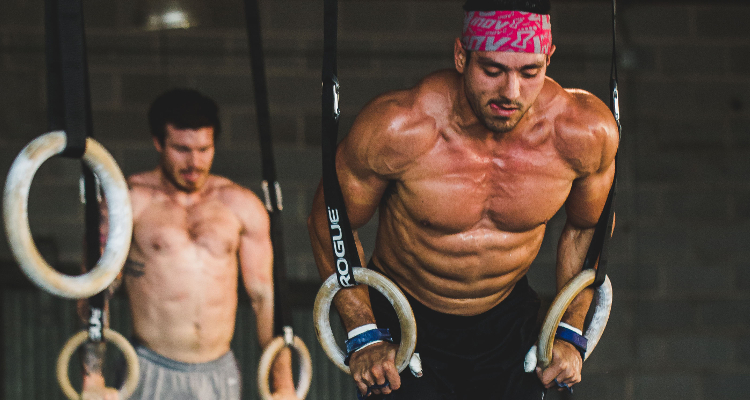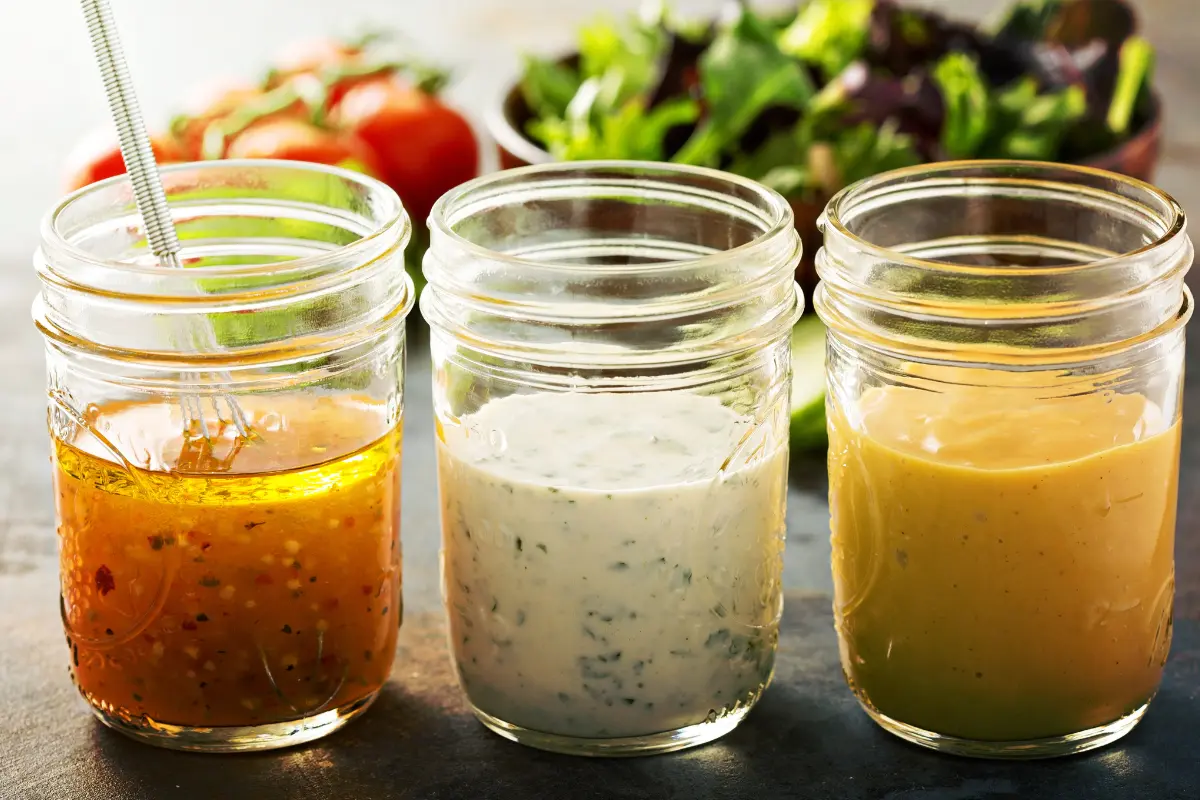
Competition day is finally here. You’ve trained for months and maximized your recovery, and now it's time to step up and perform. The last thing you need is your nutrition holding you back after all the hard work you’ve invested. One of the biggest factors that can make or break your performance is how you fuel your body throughout the day. So, here’s what you should know about eating for competition days.
Tips And Tricks For Competition-Day Nutrition
As you brainstorm meals, here are a few things to keep in mind.
Stick to Familiar Foods
Competition day is not the time to try out new foods or supplements. You want your day to be as predictable as possible, and that includes your nutrition. Adrenaline and nerves will also be part of the process, so ensure that your stomach and body feel good by using foods you already know to help you perform well.
Take it for a Test Run
You train and test yourself during training to prepare for competition. Practice your nutrition too. Use a test day before the competition to run through your fueling strategy and ensure that your food choices work well for you.
Stay Fueled
Nerves and adrenaline are two of the defining characteristics of a competition day, and they can easily affect your appetite. Do your best to keep a regular eating schedule throughout the day. Also, make sure to space those meals out around your competition so that you aren’t eating too close to go time.
Advertisement
Consider Your Carbs
Carbohydrates are the macronutrient you'll manipulate most intentionally when it comes to prepping for a competition. They are the easiest source of readily accessible energy for your body, and you can use them intentionally to maximize your energy and recovery.
The glycemic index is the main way we measure a carbohydrate's impact on the body—it measures how fast the sugar from carbs is released into your bloodstream [1]. Carbs lower on the GI index give you slower waves of energy, which helps with steady, long-term energy. Carbs higher on the GI index give you a quick burst of energy, which helps you fuel up and recover quickly. Although different types of carbs are useful for different circumstances, all competitors can benefit from manipulating their carb choices.
Skip the Fat
Avoid eating too much fat before and after your workouts. Although fats give you longer-term energy, they take a long time to digest. If your body is focused on digesting fats instead of maximizing carbs, you'll see less benefit from our competition fueling. Stack fats more in the morning or evening and less around competition time [2].
Fueling Considerations for CrossFit or Tournament-Style Competitions
Some competition styles involve all-day competitions that take place in heats, such as CrossFit competitions. Other sports have tournaments where you may be playing several matches or games over the course of a few days. All of these situations involve moments of high energy followed by long breaks. The key is to recover from previous events and fuel up for future events so you can maintain energy throughout the day.
Advertisement
Pre-Competition
One hour before your competition begins, eat your normal pre-workout meal. Make this a mixture of moderate- and high-GI carbs. The moderate-GI carbs will help get sugar into your bloodstream slowly and the higher-GI carbs will give you the quick hit of energy you need once you go into the first session. Consider a bagel with 15–20 grams of peanut butter and honey, whole-grain toast with jelly, or sweet potatoes with some brown sugar.
Nutrient Timing
For each subsequent session after the initial one, eat a meal of high-GI carbs 30 minutes before you begin. After each session, eat a recovery meal of high-GI carbs immediately. Both meals could be things like fruit squeeze packs, pretzels, cereal, rice cakes, etc. Continue this pattern for the total number of sessions you have that day. Throughout the day, consume moderate amounts of protein regularly as well. The timing of the protein isn’t as critical as long as you’re getting it in throughout the competition. Also, consider if you’ll have any longer breaks for lunch, which would give you an opportunity for something more substantial. [3]
Fueling Considerations for Endurance Sports
Events requiring steady energy production throughout a long period are common with running, biking, swimming, skiing, and other endurance sports. You will need to have enough fuel beforehand to help you maintain energy, without it causing any detriment to your performance. You will also need to take in nutrients while actively competing, changing the nature of nutrient timing and food choice.
Pre-Competition
In the morning, try to eat 100–150 grams of low-fiber, high-GI carbs two to three hours before your race. This could be a bagel with peanut butter and honey plus a carb sports drink. The key is to keep the sugars simple. Then, get 10–20 g of protein (this is why peanut butter is a great choice!). You want to have good energy stores for your body to use when you begin.
Advertisement
Intra-Race Fueling
While you’re racing, you’ll want to stay fueled, and taking in carbs during can help prevent fatigue. Shoot for about 1/4 of your body weight (lbs) in grams for each hour of training or racing past 45–90 minutes. For example, a 130-lb marathoner should ingest about 30–35 g of carbs each hour of training or racing. These carbs need to be things that are very simple sugars and easy to digest. [4]
Hydration Considerations
In an endurance situation, you will be losing a lot of water, but also a lot of other important nutrients in that water, such as electrolytes. Be sure to stay hydrated during the event by ingesting water as well as liquids that contain electrolytes. You can buy drinks with electrolytes and sugar in them to take care of both fueling and hydration, or you can buy electrolyte tabs to add to water.
Post-Race Recovery
Due to the large amount of energy expended during endurance sports and the inability to fully fuel during the race, you will need to focus on recovery after. Aim for 50–100 grams of carbohydrates, preferably in liquid form, immediately after the race to promote rehydration as well as carbohydrate repletion after a race. Then, try to add approximately 5–9 g of protein with every 100 g of carbohydrates eaten after a race. [5]
Fueling Considerations for Single Events
Many competitions involve a single major event, such as a basketball game or Olympic lifting competition. In this situation, fueling for the competition is a lot more like we’d fuel for our daily workouts.
Advertisement
Pre-Competition
One hour before your competition begins, eat your normal pre-workout meal. Make this a mixture of moderate- and high-GI carbs. The moderate GI carbs will help get sugar into your bloodstream slowly, and the higher GI carbs will give you the quick hit of energy you need once you go into the first session. Consider a bagel with peanut butter and honey, toast with jelly, or sweet potatoes with brown sugar.
During Competition
If your event allows you some downtime and you will be resting at all, make sure you refuel as needed, such as at halftime in a game. You’ll want to focus on faster carb sources high on the GI index, such as fruits and rice.
Post-Competition
When you’re finished, you want to be sure to help your body recover and refill its glycogen stores. Again, you’ll want to turn to faster carb sources that are simpler sugars. Also, be sure to include some protein after the event to help your muscles repair and replenish. [6]
Wondering how your daily training might look compared to eating for a competition? Check out this blog to learn more about fueling for your daily training.
Advertisement
Fueling Considerations Weight-Class Sports
While not all competition styles are the same for weight-class sports, they all involve manipulation of body weight before the competition day. This adds an extra layer of consideration when going into the day. Making weight could range from keeping an eye on nutrition the week before to a long period of cutting. Depending on your situation, cutting down to a weight class could be gradual or involve you arriving at the competition in a dehydrated and under-fueled state. Regardless, the key is to make sure that you recover adequately before your event.
Cutting for an event is a very individualized and personal decision based on a variety of factors. Check out our free Weight Cutting Guide for Athletes. We'll help you navigate the process and make weight without sacrificing performance.
Preparing for a competition is a long process, and you never want your nutrition to be the factor that causes you to stumble. Working with a coach is a great way to make sure your nutrition is dialed in, and you perform your best. WAG coaches are trained to help create a plan for you and your sport specifically while helping you fuel correctly and recover fully. Join us and take your performance to the next level!
References:
- Jeukendrup AE. Carbohydrate during exercise and performance. Nutrition. 2004 Jul-Aug;20(7-8):669-77.
- Fox AK, et al. Adding fat calories to meals after exercise does not alter glucose tolerance. J Appl Physiol. 2004 Jul;97(1):11-6.
- Aragon AA, Schoenfeld BJ. Nutrient timing revisited: is there a post-exercise anabolic window? J Int Soc Sports Nutr. 2013 Jan 29;10(1):5.
- Jeukendrup AE. Carbohydrate during exercise and performance. Nutrition. 2004 Jul-Aug;20(7-8):669-77.
- Berardi JM, et al. Postexercise muscle glycogen recovery enhanced with a carbohydrate-protein supplement. Med Sci Sports Exerc. 2006 Jun;38(6):1106-13.
- Berardi JM, et al. Postexercise muscle glycogen recovery enhanced with a carbohydrate-protein supplement. Med Sci Sports Exerc. 2006 Jun;38(6):1106-13.
Schedule a Free Intro Call
Working Against Gravity has led the macro tracking and health space for over a decade. Our team doesn’t just understand the science of nutrition—we’ve spent years mastering the art of tailoring it to fit your life. That means no cookie-cutter plans, just real strategies that have worked for over 30,000 people.
Schedule a free call with our team to learn how working with a 1-on-1 WAG coach will help you reach your goals.



